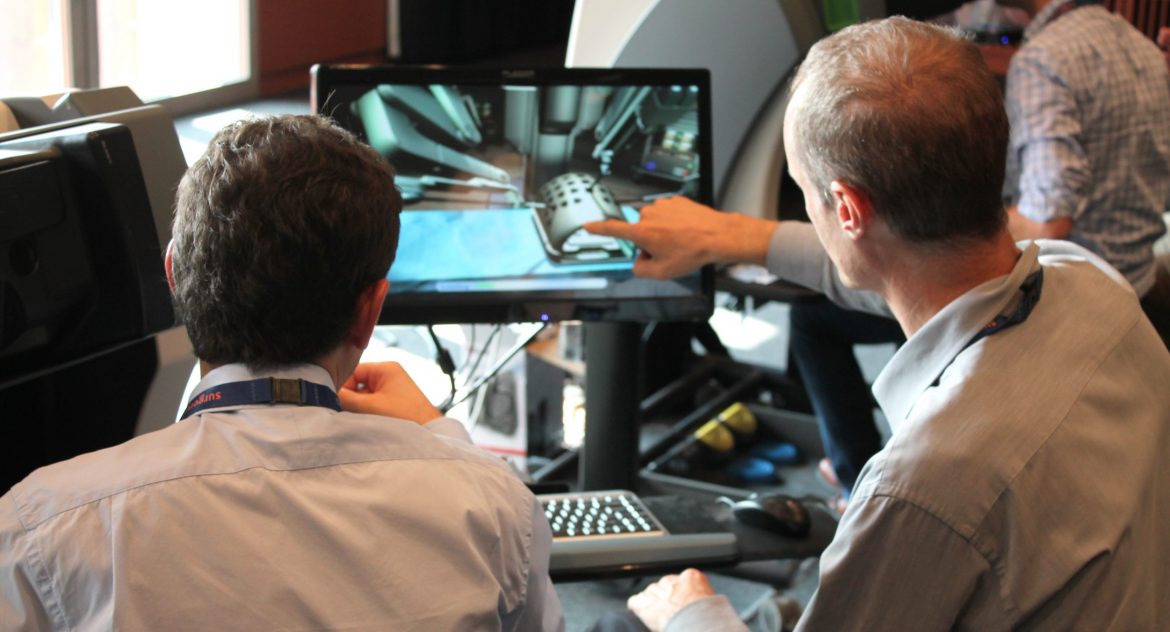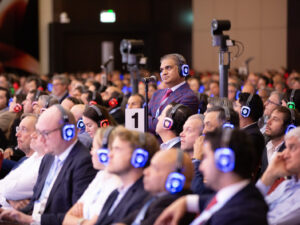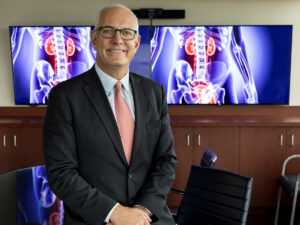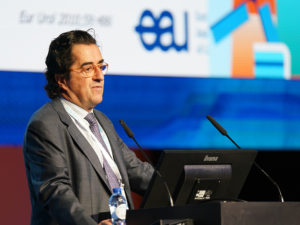“ERUS18 aims to offer participants a wide range of content that will fulfill their educational needs,” according to Dr. Justin Collins (Melle, BE). “This ranges from updates on surgical improvements in the most common robotic surgical procedures to fantastic opportunities to meet and discuss issues with world leading experts. This year it will also be very interesting to hear the updates on the new robotic platforms that are coming to the market.”
The 15th edition of the annual EAU Robotic Urology Section meeting is coming to Marseille on 5-7 September, 2018. September 5th features the Junior ERUS-Young Academic Urologists’ meeting as well as a choice of four courses by the European School of Urology. The regular scientific programme starts on September 6th and features both live and semi-live surgery, case discussions and state-of-the-art lectures on all the latest in robotic urology.
Dr. Collins has been part of the ERUS scientific working group for the last four years, as well as its educational group for the past two. In Marseille, Dr. Collins will be presenting on Enhanced Recovery After Surgery (ERAS) protocols in robotics and moderating a plenary session on this topic. He will present updates from the scientific working group and also speak on theatre team efficiency models as part of the Junior ERUS programme.
“I have been involved in developing a pamphlet that will be available at ERUS18 on enhanced recovery guidelines with a focus on robotics,” Dr. Collins explains. “We plan to do a summary of these and give them to all delegates at this meeting. These will include guidance on RAPN, RARP and RARC.”
The ERUS scientific working group published a consensus view on an enhanced recovery for RARC, published in European Urology in 2016 (see: ‘Enhanced Recovery After Robot-assisted Radical Cystectomy: EAU Robotic Urology Section Scientific Working Group Consensus View’ Eur Urol. 2016 Oct;70(4):649-660).
For the last four years, Dr. Collins was a urologist and research co-ordinator at Karolinska Institute in Stockholm, Sweden. In April 2018, he began a new job as Medical Director at Orsi Academy: “My specialty interests are developing robotic training curricula and research in e-learning and eHealth. With the opening of the new Orsi Academy building we will have many exciting opportunities to both improve training and develop research in MedTech.”
Junior ERUS & Hands-on Training
As has become tradition at ERUS meetings, a whole day is set aside for a special programme that is designed to appeal to younger urologists. Lectures are geared to their interests and concerns, and the ESU courses also take place on this day. Dr. Collins sees clear value for young urologists:
“I believe that the Junior ERUS-YAU day is a great opportunity for younger ERUS members to meet more experienced surgeons and to learn from them. At the same time, ERUS18 allows more senior members to actively engage with these juniors, to listen to their ideas and concerns, so I see great value in this special day for everyone involved.”
On the ESU courses on offer at ERUS18: “These include nerve-sparing and locally-advanced RARP technique, RAPN and RARC. The ESU courses are run by experts from around the world and always get excellent feedback, so they come highly recommended.”
Throughout ERUS18, slots are available for hands-on training. “These courses are aimed at novice and experienced surgeons practicing or looking to hone their technical skills. The training uses VR simulators and focuses mainly on basic robotic skills training, although there are increasingly good options for full procedure training in VR simulation, so there is also an introduction into standardized surgical steps in robot-assisted procedures.”
“The main aim of these 90 minutes courses is to improve the participants’ control-skills and hand-eye-coordination. Training includes Endowrist manipulation, camera control and the use of the additional robotic arm. There is also skills training in needle placement, in driving and suturing and knot tying. All delegates receive constructive feedback with objective benchmarking of their console performance.”
Live surgery at ERUS18
A clear highlight of the scientific programme at ERUS18 according to Dr. Collins is the live surgery. “I think it’s always very educational. It’s a great opportunity to learn surgical tips and tricks from highly experienced surgeons.”
Asked about the continued use of live surgery at educational events, Collins remained optimistic: “I believe that live surgery, appropriately done, is of huge educational value. It is in our DNA that we learn more when we feel engaged with something. Live surgery is simply more engaging than pre-recorded surgery.”
Collins stresses that live surgery should only be included in a scientific meeting if all requirements are met to ensure patient safety. Both the adherence to the EAU Live Surgery Guidelines and patient selection are very important. “Highly complex or so-called redo surgery is often not the best learning experience.”
“Surgeons performing live surgery should be operating within their comfort zone at all times, in my opinion. Although it is not always possible at international conferences, live surgery should ideally be performed in a home institution with the surgeon’s own patients and staff, which will likely improve the overall quality of the care that the patient receives.”





